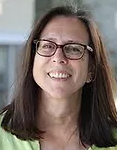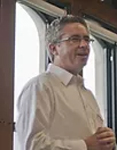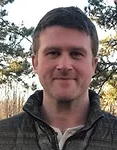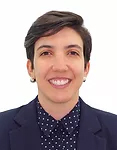The Clark Center for the Study of Natural Resource Extraction and Society was launched in the summer of 2019. Clark faculty and student research on extractive industries, infrastructure investment, energy, and agroindustry has become increasingly vibrant over the last decade, and the Center will serve as a space for this research community to grow. Initially bridging the Graduate School of Geography, International Development Community and Environment Department, George Perkins Marsh Institute and the new Earth conversation, the Center will also work to engage other departments and teaching programs at Clark and elsewhere.
Just as importantly, the Center seeks to deepen Clark’s collaboration and engagement with civil society organizations, researchers and public interest bodies around the world. Some of our core collaborations in the last five years have been with Oxfam, Ford Foundation, the Climate and Land Use Alliance, Fundación PRISMA, Global Greengrants Fund advisors, the Effective States and Inclusive Development Research Centre, the Universidad del Pacífico-Peru, the Catholic University of Bolivia, and a range of research and civil society centers in the Andes, Central America and Indonesia.
The Center is committed to cross-disciplinary approaches to research on resource extraction, with a particular focus on theory and methodology coming from political ecology, development studies, landscape ecology, and geographic information science and remote sensing. We are geographers, historians, social scientists, and scholars of development who wish to broaden the definition of natural resource extraction and better understand its shape, dynamics and consequences under a variety of environmental and governance contexts. Our focus is both local and global, and our concern is to do scholarship that advances understanding of the place of resource extraction within society and the Earth system, and that contributes to a governance of natural resource extraction that enhances community and human rights, the preservation and restoration of landscapes, and the possibilities of living well.

 Anthony Bebbington is the Milton P. and Alice C. Higgins Professor of Environment and Society at the Graduate School of Geography. He is also Professorial Research Fellow at the University of Manchester, Research Associate with Rimisp- Latin American Center for Rural Development, Chile, and Honorary Professorial Fellow at the University of Melbourne. He is an elected member of the US National Academy of Sciences and the American Academy of Arts and Sciences, and serves as a Director of Oxfam America. He has been a Guggenheim Fellow, an Australia Laureate Fellow, and has held fellowships from the Center for Advanced Studies in the Behavioral Sciences, Stanford, the UK Economic and Social Research Council, and the Iberoamerican Institute and Freie Universität of Berlin, among others. He is an editor of the Proceedings of the National Academy of Sciences, and Associate Editor of the journal World Development. Prior to Clark he has held positions at the Universities of Manchester, Colorado-Boulder and Cambridge, and at the World Bank, International Institute for Environment and Development and the Overseas Development Institute. Tony’s work addresses the political ecology of rural change with a particular focus on extractive industries and socio-environmental conflicts, social movements, indigenous organizations, livelihoods. He has worked throughout South and Central America, though primarily in Peru, Ecuador and Bolivia, and more recently in El Salvador. See the following websites for more on this research:
Anthony Bebbington is the Milton P. and Alice C. Higgins Professor of Environment and Society at the Graduate School of Geography. He is also Professorial Research Fellow at the University of Manchester, Research Associate with Rimisp- Latin American Center for Rural Development, Chile, and Honorary Professorial Fellow at the University of Melbourne. He is an elected member of the US National Academy of Sciences and the American Academy of Arts and Sciences, and serves as a Director of Oxfam America. He has been a Guggenheim Fellow, an Australia Laureate Fellow, and has held fellowships from the Center for Advanced Studies in the Behavioral Sciences, Stanford, the UK Economic and Social Research Council, and the Iberoamerican Institute and Freie Universität of Berlin, among others. He is an editor of the Proceedings of the National Academy of Sciences, and Associate Editor of the journal World Development. Prior to Clark he has held positions at the Universities of Manchester, Colorado-Boulder and Cambridge, and at the World Bank, International Institute for Environment and Development and the Overseas Development Institute. Tony’s work addresses the political ecology of rural change with a particular focus on extractive industries and socio-environmental conflicts, social movements, indigenous organizations, livelihoods. He has worked throughout South and Central America, though primarily in Peru, Ecuador and Bolivia, and more recently in El Salvador. See the following websites for more on this research:  Denise Humphreys Bebbington is Research Associate Professor in the Department of International Development, Community and Environment at Clark University in Massachusetts, USA. Her research has addressed the political ecology of natural gas in Bolivia and the implications of the gas economy for both indigenous peoples and regional societies, as well as mining conflicts in Peru. More recently, she co-led a global scoping study on Extractive Industries, Infrastructure Development, Forest Loss and Forest Community Rights for the Climate and Land Use Alliance. Prior to her academic research she served as Representative to Peru for the Inter-American Foundation (IAF), South American Regional Sub-Director for Catholic Relief Services (CRS), and Latin America Program Coordinator for the Global Greengrants Fund (GGF). Publications from her research have appeared in the Environmental Science and Policy, World Development, Iconos, Development and Change, European Review of Latin American and Caribbean Studies, Ecuador Debate, Umbrales, and the Journal of Latin American Geography and others.
Denise Humphreys Bebbington is Research Associate Professor in the Department of International Development, Community and Environment at Clark University in Massachusetts, USA. Her research has addressed the political ecology of natural gas in Bolivia and the implications of the gas economy for both indigenous peoples and regional societies, as well as mining conflicts in Peru. More recently, she co-led a global scoping study on Extractive Industries, Infrastructure Development, Forest Loss and Forest Community Rights for the Climate and Land Use Alliance. Prior to her academic research she served as Representative to Peru for the Inter-American Foundation (IAF), South American Regional Sub-Director for Catholic Relief Services (CRS), and Latin America Program Coordinator for the Global Greengrants Fund (GGF). Publications from her research have appeared in the Environmental Science and Policy, World Development, Iconos, Development and Change, European Review of Latin American and Caribbean Studies, Ecuador Debate, Umbrales, and the Journal of Latin American Geography and others.
 Nicholas Cuba is a Postdoctoral Researcher in the Department of Geography at Clark University. His work analyzes data from multiple sources to measure, model, and describe ecological properties and processes over space and time, drawing inferences about the functioning and governance of socio-environment systems. Primarily drawing on remote sensing, GIS, and data science as methods, he investigates disruption to communities driven by climate change and localized impacts of extractive and infrastructure development. Much of his past and current research has purposefully engaged with international civil society and legal groups such as Oxfam America, Oxfam Honduras and the Center for Climate Crimes Analysis. He was previously a Voss Postdoctoral Research Associate at the Institute at Brown for Environment and Society at Brown University, and holds a PhD in Geography and MA in GIS from Clark University and a BA in Geology from Amherst College.
Nicholas Cuba is a Postdoctoral Researcher in the Department of Geography at Clark University. His work analyzes data from multiple sources to measure, model, and describe ecological properties and processes over space and time, drawing inferences about the functioning and governance of socio-environment systems. Primarily drawing on remote sensing, GIS, and data science as methods, he investigates disruption to communities driven by climate change and localized impacts of extractive and infrastructure development. Much of his past and current research has purposefully engaged with international civil society and legal groups such as Oxfam America, Oxfam Honduras and the Center for Climate Crimes Analysis. He was previously a Voss Postdoctoral Research Associate at the Institute at Brown for Environment and Society at Brown University, and holds a PhD in Geography and MA in GIS from Clark University and a BA in Geology from Amherst College. Laura Aileen Sauls is a Postdoctoral Fellow in Environmental Studies at the College of the Holy Cross (Worcester, MA) and a Research Scientist with Extractives@Clark. She completed her PhD in 2019 with a dissertation project that examined how international climate policy influences forest governance in Indigenous territories and community lands in Central America. Another line of inquiry examines how extractive industries and infrastructure expansion implicate community rights and resource conflict, particularly in rural areas. She works closely with civil society and Indigenous Peoples organizations, especially the Regional Research Program on Development and Environment (PRISMA) and Mesoamerican Alliance of Peoples and Forests (AMPB), and these collaborations have shaped her research agenda. Prior to undertaking a PhD, she served for five years in the Office of International & Tribal Affairs of the United States Environmental Protection Agency. She holds a BA in International Relations and in Environmental Science & Policy from the College of William & Mary and an MPhil in Development Studies from the University of Oxford.
Laura Aileen Sauls is a Postdoctoral Fellow in Environmental Studies at the College of the Holy Cross (Worcester, MA) and a Research Scientist with Extractives@Clark. She completed her PhD in 2019 with a dissertation project that examined how international climate policy influences forest governance in Indigenous territories and community lands in Central America. Another line of inquiry examines how extractive industries and infrastructure expansion implicate community rights and resource conflict, particularly in rural areas. She works closely with civil society and Indigenous Peoples organizations, especially the Regional Research Program on Development and Environment (PRISMA) and Mesoamerican Alliance of Peoples and Forests (AMPB), and these collaborations have shaped her research agenda. Prior to undertaking a PhD, she served for five years in the Office of International & Tribal Affairs of the United States Environmental Protection Agency. She holds a BA in International Relations and in Environmental Science & Policy from the College of William & Mary and an MPhil in Development Studies from the University of Oxford. Maria del Pilar Delpino Marimon is a third-year PhD student at Clark. Pilar earned a BA in Geography and Environmental Studies from the Universidad Católica Pontificia of Peru and a Master of City and Regional Planning from Cornell, and has worked as a lecturer in geography at the Universidad Peruana de Ciencias Aplicadas. Delpino is interested in spatial inequality, informality and regionalization processes in cross-border areas between Peru, Brazil, Bolivia and Colombia.
Maria del Pilar Delpino Marimon is a third-year PhD student at Clark. Pilar earned a BA in Geography and Environmental Studies from the Universidad Católica Pontificia of Peru and a Master of City and Regional Planning from Cornell, and has worked as a lecturer in geography at the Universidad Peruana de Ciencias Aplicadas. Delpino is interested in spatial inequality, informality and regionalization processes in cross-border areas between Peru, Brazil, Bolivia and Colombia. Andrea Cabrera Roa is a third
Andrea Cabrera Roa is a third